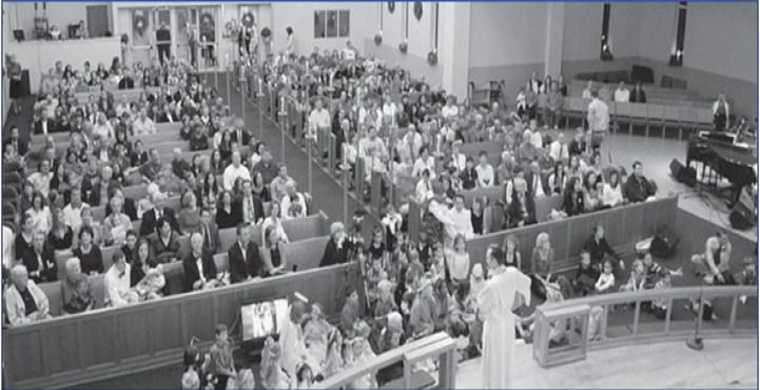FLEMING ISLAND, FLORIDA: Anglican Church finding its own identity after schism
Anglican congregation is going through a clarification of its identity
By Mike Ford
CLAY Today
www.claytodayonline.com
Eight years after leaving the mainline Episcopal Church in the United States of America, a local congregation is changing its name to proclaim its affiliation with the Anglican tradition.
New Grace Church is changing its name to Grace Anglican Church and is a member of the Anglican Church in North America, a new denomination formed in 2009. The denomination is an outgrowth formed after other groups left the Episcopal Church in reaction to the 2003 consecration of an openly-gay bishop in New Hampshire. Early on, the local congregation omitted Anglican from its name to de-emphasize its religious tradition.
"We're going through a clarification of our identity. Our movement is new and, for a season, it seemed good to drop Anglican from our name but we had it on our legal name in parentheses. Nobody liked the name New Grace because it isn't theologically-accurate. The grace of God is never new and that was confusing to people," said the Rev. Mike McDonald, pastor of the Fleming Island church on U.S. Highway 17 South.
Another ACNA-member church in Clay County -- Church of the Good Samaritan -- is in Middleburg. Rev. Hall Hunt said what church leaders believe about Christ in light of how they interpret the Bible is more of an issue than homosexuality.
"We emphasize the authority of scripture, especially since the Reformation and the same people who are liberal about gay marriage and gay ordination are often the same people who don't believe in the divinity of Christ and that's the real issue," he said.
Anglicanism began when King Henry VIII severed the church in England from the Catholic Church to become the Church of England in 1534. Around the world, the Anglican Communion officially includes one member per nation, which in the U.S., is the Episcopal Church. However, the ACNA is in fellowship with the Anglican Global Future Conference, which is comprised of a conference of bishops in the Anglican Communion who oppose the Episcopal Church USA and helped set up the ACNA as an alternative.
Sometimes referred to as Catholic Lite, Anglicanism includes those who emphasize their common faith with the Catholic Church, as well as those who identify with the Reformation. Those who started the new church not only emphasize the Reformation, but are also identified with American evangelical Protestantism.
"In our beginner's class, I don't make a big deal out of being Anglican. I tell them I don't care if they ever become Anglican because Jesus told us to make disciples, not make Anglicans," McDonald said.
Much of the Anglican tradition is as rich in high church smells and bells as a royal wedding is in pomp. However, that's not emphasized at the Fleming Island church.
"If you're a high-church person, you're not going to be comfortable here, so we aren't trying to be all things to all Anglicans," McDonald said.
Grace Anglican began in 2006 as an affiliate of the Anglican Mission in the Americas, a missionary organization started by the Anglican Church in Rwanda. The local congregation had been at Grace Episcopal Church in Orange Park under Rev. Sam Pascoe, who was upset over what took place in New Hampshire. Pascoe led the congregation out of the Episcopal Church to launch New Grace Church. Pascoe was defrocked in 2007 for having an "inappropriate relationship" with an adult female parishioner. His permission to serve as a minister was reinstated the following year.
Like the Fleming Island church, Hunt's church in Middleburg has debated its identity in light of books by church marketing consultants.
"We named ourselves Church of the Good Samaritan from the beginning. We kept the name when we left the property owned by the Episcopal Church in 2007. We don't have Anglican on our sign and we have no plans to add it, but it's on the end of our legal name," he said. "We left it off our common name because those church growth people -- consultants -- say to avoid denominational identity because people looking for a church don't look for a denomination and because people don't know what Anglican means, anyway."
END














